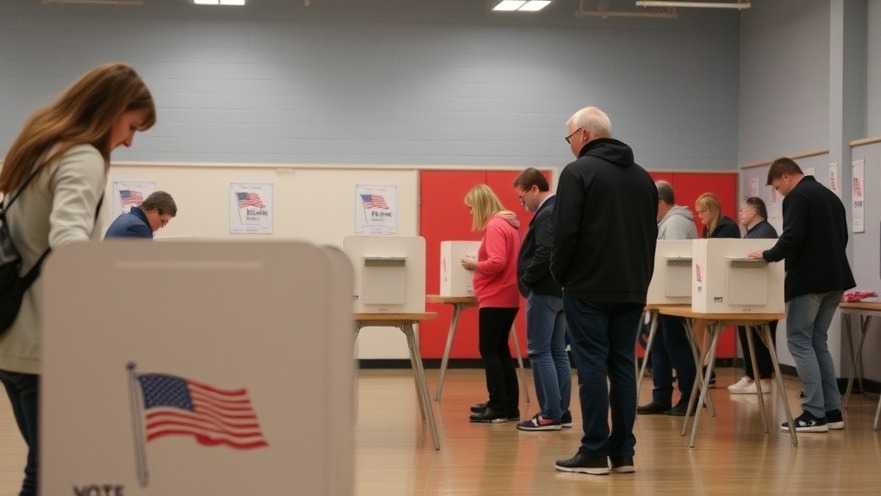
Texas Voter Registration Bill Reversed: What Happened?
In a surprising legislative turn, Texas lawmakers have decided to scrap a previously passed measure allowing voters to change their registration address at the polls and immediately cast their ballots. This move comes during a special session and effectively restores restrictions on late voter registration changes, taking Texas back to its original 30-day waiting period for address changes.
The Background of Voter Registration in Texas
Previously, under legislation adopted earlier this year with bipartisan support, voters were permitted to update their addresses and vote on elections linked to their new residences within the same county. As it currently stands, however, Texas does not allow same-day registration for new voters, unlike 23 other states, meaning that those attempting to update their details close to the election will find themselves out of luck.
Concerns Among Election Administrators
Some election officials, wary of allowing same-day changes, have raised valid concerns. Trudy Hancock, a head of elections in Brazos County, noted that constant changes in student populations—largely from the Texas A&M University—could lead to complications at polling places. With election workers responsible for processing these changes on the fly, there’s the risk of voters receiving incorrect ballots. “Our election workers are experienced, but they can make mistakes,” she stated in reference to the hectic atmosphere on election days.
Political Dynamics Behind the Reversal
Interestingly, while the original amendment allowing voters to register at the polls was welcomed by many lawmakers, the recent decision to reverse the amendment was prompted by additional scrutiny and concerns from various stakeholders. Rep. Matt Shaheen, the author of the initial bill, remarked that during the interim session, a more comprehensive evaluation of the measures should take place. “I think it’s reasonable and prudent to reverse the amendment that was made,” he said, emphasizing the need for thoughtful consideration moving forward.
The Impact on Voter Participation in Texas Elections
This legislative shift brings to light a significant discussion about the accessibility of voting in a state where voter turnout has been a contentious topic. Critics argue that limiting options for voters does not promote participation, especially among younger demographics who may be more transient. By reinstating these restrictions, Texas may be inadvertently reinforcing barriers that prevent eligible citizens from engaging in the electoral process, a sentiment echoed widely among electoral reform advocates.
What This Means for Future Elections
As elections in Texas approach, particularly the critical 2026 political races, the reinstated restrictions could have profound implications. Stakeholders within the community—ranging from students to policymakers—are watching keenly, aware that any hindrances in the voting process might suppress turnout. With Gov. Greg Abbott likely to sign the bill into law, the immediate changes may set the tone for future electoral policies as Texas navigates its voter registration landscape.
Looking Ahead: Voter Registration Laws in Texas
With the governor's signature anticipated, it's important for Texans to stay informed and involved in discussions regarding voter registration laws. While this recent bill may tighten restrictions, it also opens doors for conversation about how Texas can enhance voter engagement and accessibility in future legislative sessions. Advocates for voting rights are encouraged to continue voicing their opinions and shaping the local landscape to ensure every citizen's vote is counted.
 Add Element
Add Element  Add Row
Add Row 



Write A Comment